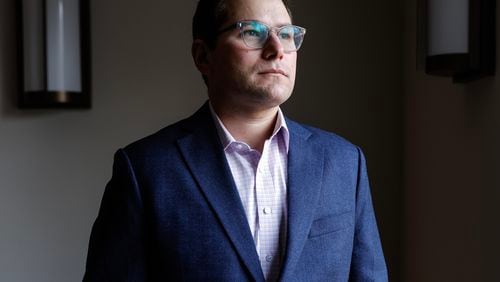Gov. Brian Kemp signed a bill this week that removes a significant restriction for drug treatment centers seeking to open in the state.
In December, The Atlanta Journal-Constitution wrote about a decades-old provision in Georgia’s zoning code that forces drug treatment centers to wait anywhere from six to nine months before getting approval to open. The AJC found examples where facility operators had lost large sums of money while waiting to go through the zoning process, and identified at least one center that didn’t open at all because of the restrictions. Critics said the zoning restrictions were prohibiting the expansion of much-needed drug treatment programs in certain communities across the state.
Adam Kaye, a real estate lawyer, brought the issue before lawmakers in recent months after his client encountered the long waiting period when trying to open a drug treatment center in Fayette County. The AJC spoke to several representatives for drug treatment centers in Georgia, and found that enforcement of the waiting period was spotty: some counties and local governments were not enforcing the statute, while others were doing so.
“My goal when I set out to try to get this law repealed was to make treatment more accessible, and to end the discrimination against substance use disorders and mental health disorders,” said Kaye. “This is just one step in the right direction, but I think it will definitely help.”
The months-long waiting period also may have violated federal laws that are designed to protect the rights of people in recovery for substance abuse. Two legal experts previously told the AJC that they believe the existing statute would be extremely vulnerable if it were ever challenged in court.
Steven Polin, general counsel for Oxford House, a Maryland-based nonprofit that provides housing for people recovering from addiction, told the AJC late last year that he’s been involved in hundreds of matters across the country that involved legal fights to open drug treatment facilities. Typically, Polin said he sees governments impose moratoriums; this restriction – a longer waiting period – is something he hadn’t encountered before.
“I’ve never quite seen this twist before,” he said. “And it’s a lengthy waiting period. It’s not like, you’ve got to wait a month or a couple of weeks. We’re talking six to nine months here.”
Kaye and other proponents for drug treatment centers said they believed the statute was reflective of the not-in-my-backyard attitude that often comes with trying to open a facility in a new area. Now, drug treatment centers are subject to the standard waiting period; the typical property that’s going through the re-zoning process must wait anywhere from 15 days to 45 days.
Kaye, whose father is former Georgia state representative Mitchell Kaye, said he has been in contact with several zoning attorneys who are actively trying to help open treatment centers throughout the state.
“There are people who this will have an immediate impact for,” Kaye said.
One of those people who will benefit from this law is Trey Lewis, who is trying to open up a facility that would treat hundreds of people in Gainesville, but has been stymied by the long waiting period. He said he’s put about $2 million dollars toward that effort, and has been in limbo for months. Lewis, who is the founder and CEO of Good Landing Recovery, said he’s opened other locations in Georgia but this is the first time they’ve run into the law.
“The site plans are approved but it’s just sitting because of the [prior] law,” Lewis said, later adding, “This could save me a lot of time and money.”
More importantly, he said, this will benefit people who are seeking treatment in the Gainesville area.
“There’s a desperate need,” Lewis said.






